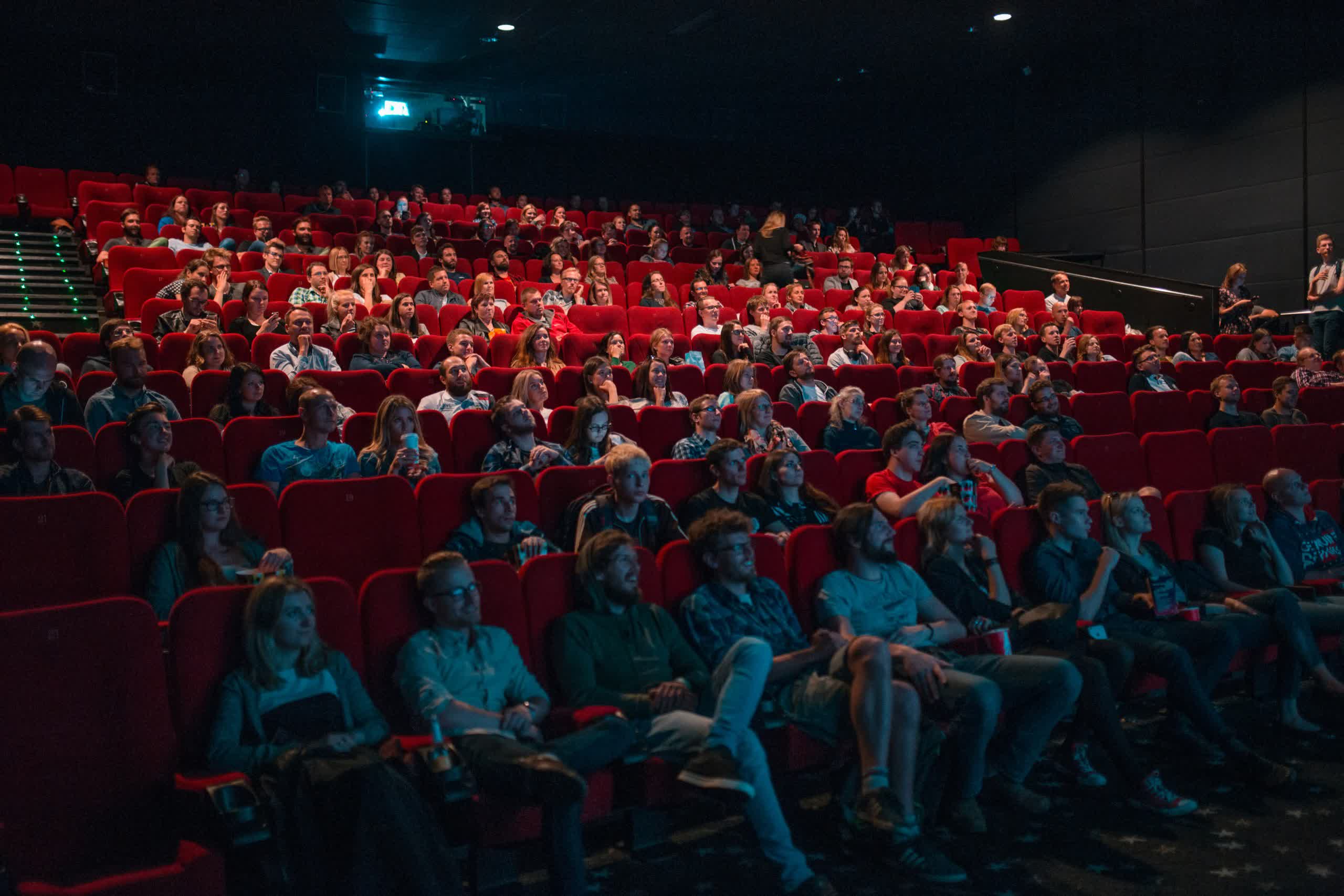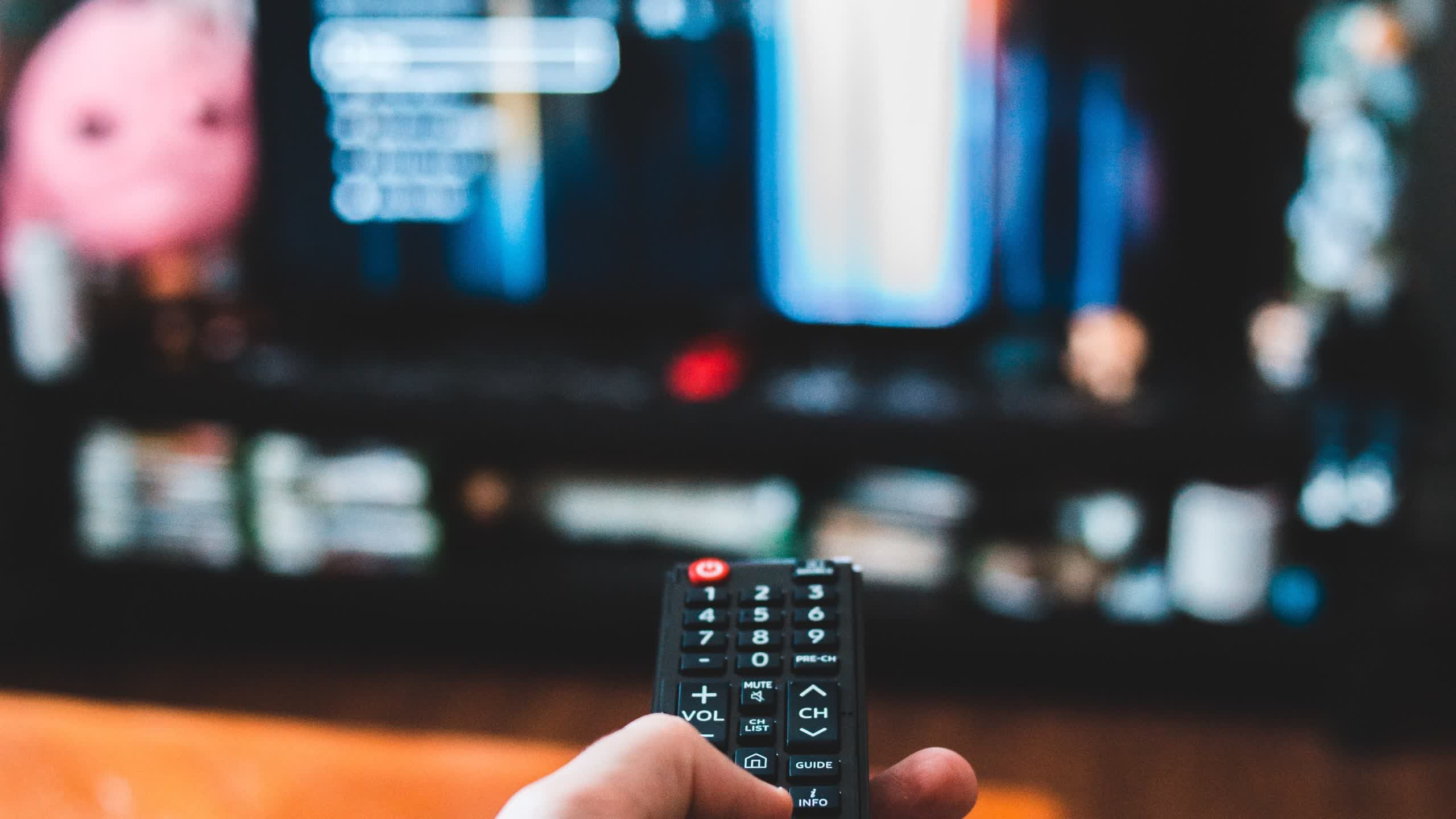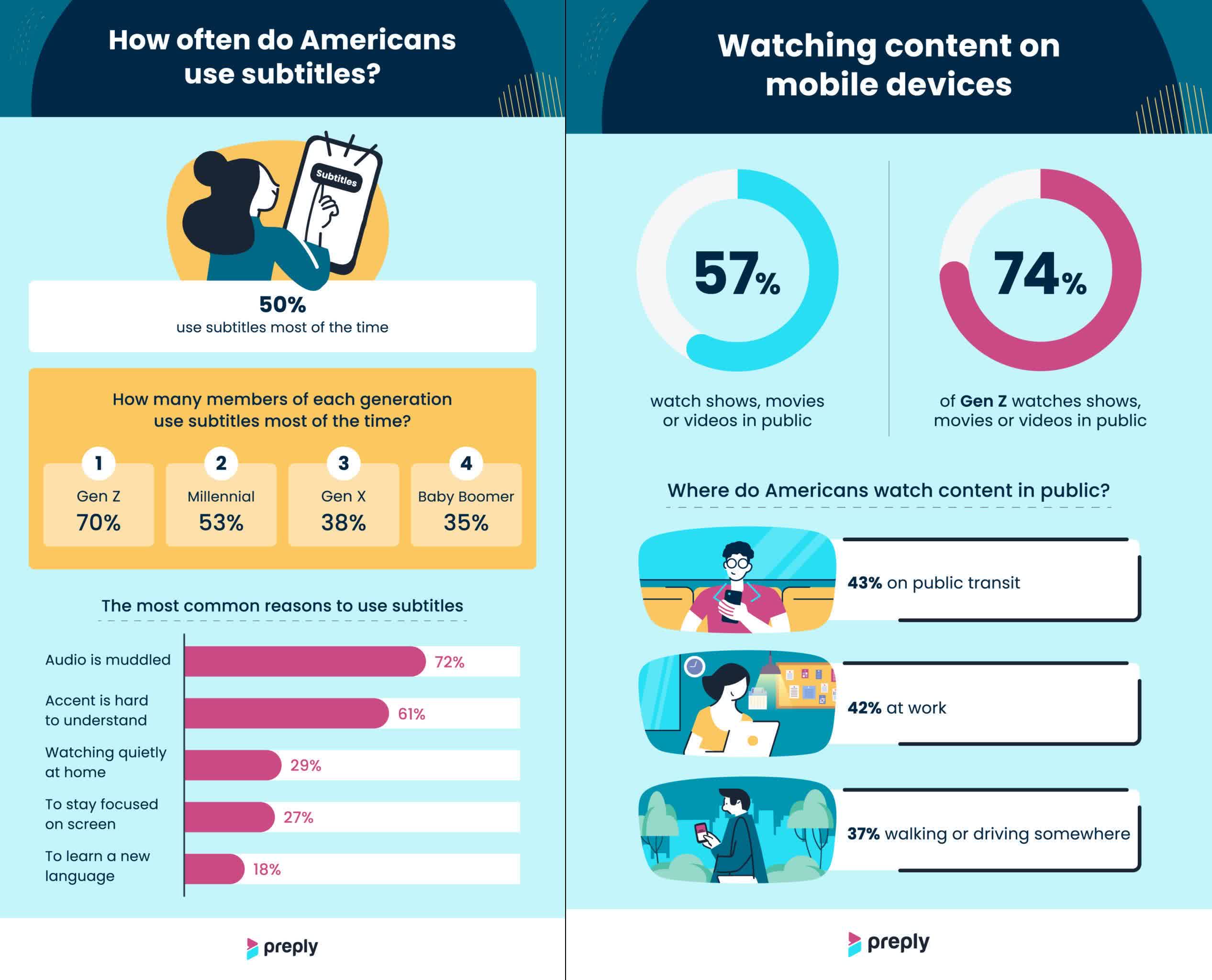The big picture: Recent articles have re-ignited the debate over why more viewers use closed captioning these days. A piece from the Telegraph over the weekend highlights the rising popularity of foreign media and partially blames kids stuck on their phones, but that doesn't tell the whole story.
Filmmakers and researchers have proposed multiple factors to explain the rising popularity of subtitles. Reasons include changes in how viewers process information, what people are watching, and shifts in audio design. Translators and captioners are acutely feeling the effects.
A Sunday piece from the Telegraph is the latest to highlight the trend, pinning it on Generation Z. It references last November's study from Stagetext and Sapio Research suggesting most viewers aged 18-25 turn on subtitles some or all of the time. One big reason is that they're more willing to watch shows and movies produced outside the US, both English and non-English. Americans watching UK shows like Peaky Blinders, Downton Abbey, or Derry Girls might need help understanding the accents.
| Age | Use subtitles some or all of the time watching TV on any device | Deaf, deafened or hard of hearing |
| 18-24 | 80% | 10% |
| 26-35 | 64% | 15% |
| 36-45 | 55% | 15% |
| 46-55 | 37% | 14% |
| 56-75 | 23% | 18% |
Credit: BBC / Stagetext / Sapio Research
Earlier this month, a survey from Preply yielded similar results to the Sapio study, noting that Americans also had trouble understanding the accents in Game of Thrones, Outlander, Bridgerton, The Crown, and Doctor Who. It also contains a list of celebrities Americans have trouble understanding, filled with UK actors like Tom Hardy, Michael Caine, James McAvoy, and Idris Elba.
Increasingly popular foreign-language programming is another apparent reason for the rise in subtitle use. The South Korean series Squid Game became Netflix's most popular show ever. Parasite --- also from South Korea --- was the first non-English-language film to win Best Picture at the Oscars in 2020. Other examples include Money Heist, Lupin, Narcos, Call My Agent!, RRR, and Dark.
Another theory is that younger viewers like to quickly read subtitles, glance at what's happening on the TV, and then resume looking at their phones. Here, subtitles effectively facilitate passively watching a series or movie while multitasking.
However, a significant factor the Preply survey indicates is that dialogue is getting harder to hear due to the sound mixing. Over three-quarters of respondents reported difficulty hearing characters' lines over background music. For example, Christopher Nolan's 2020 film Tenet became a flashpoint in the debate surrounding unintelligible movie dialogue.
Last December, Slashfilm interviewed entertainment industry workers to find the root causes behind recent shifts in audio mixing. Some directors and actors now prefer a naturalistic approach to delivering and shooting performances that might be harder for the sound crew to record. Some say sound teams are increasingly ignored on sets. Directors and audio mixers also face trouble when optimizing for theaters versus TVs.

Multiple interviewees complained to Slashfilm that theaters set their speakers too low, killing the dialogue. When mixing for streaming, a significant obstacle is the audio compression services utilized to conserve data. Mobile devices let viewers watch content in busier and noisier public spaces. Some also use subtitles to learn a new language, including ESL learners.
The growing preference for subtitles and the popularity of foreign-language entertainment have increased a demand that subtitle writers are struggling to meet. Television is drawing translators away from other sectors like diplomacy. At the same time, captioning is increasingly being recognized as an art form, as viewers have praised the creative writing in Stranger Things Season 4's closed captions.
Whatever the case, it's clear that subtitles have become an increasingly important accessibility tool, especially for younger audiences.

